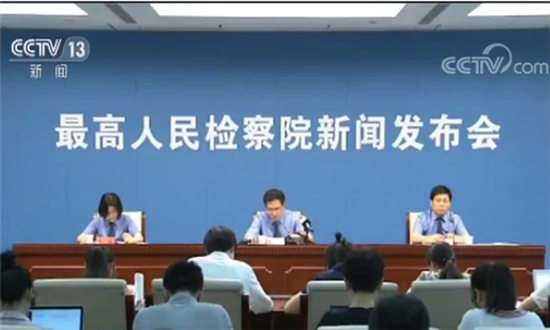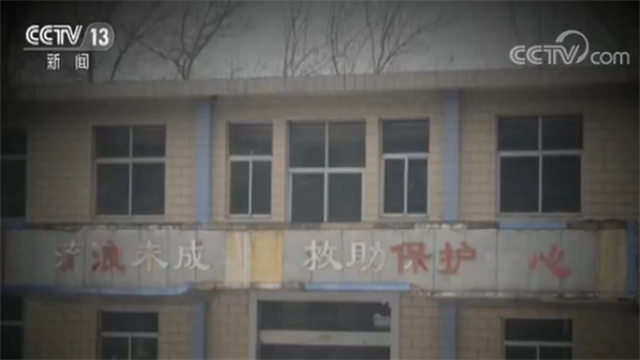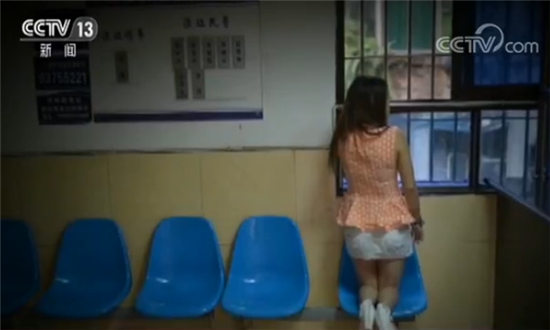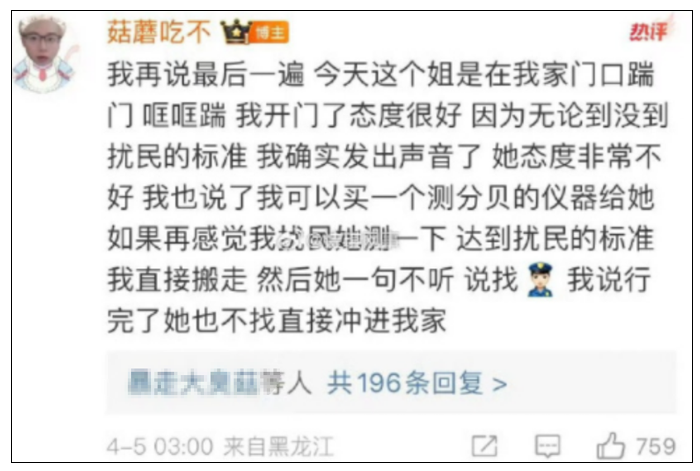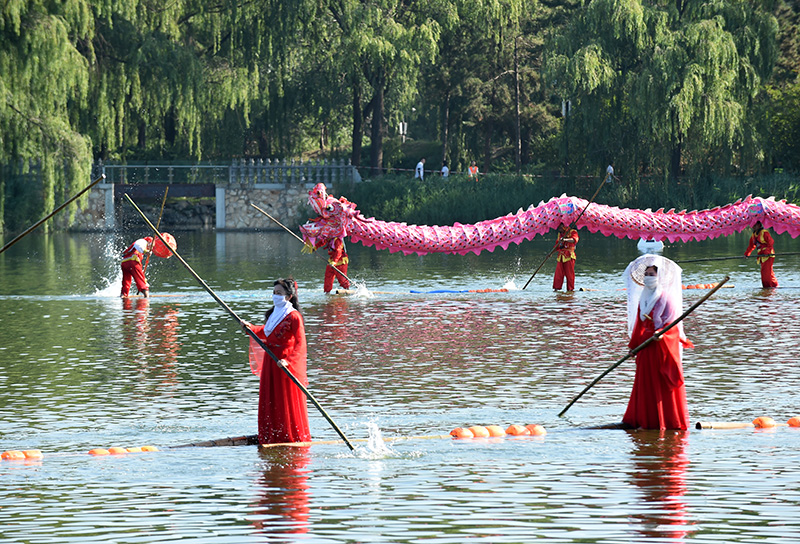
On June 22 nd, the solo bamboo drifter performed on the water in Houhu Lake in Kyushu Scenic Area of Yuanmingyuan, Beijing.
It was the fifth day of the fifth lunar month, the Dragon Boat Festival, a traditional festival in China. Various places hold colorful cultural and recreational activities to spend traditional festivals.
Xinhua News Agency reporter Luo Xiaoguang photo
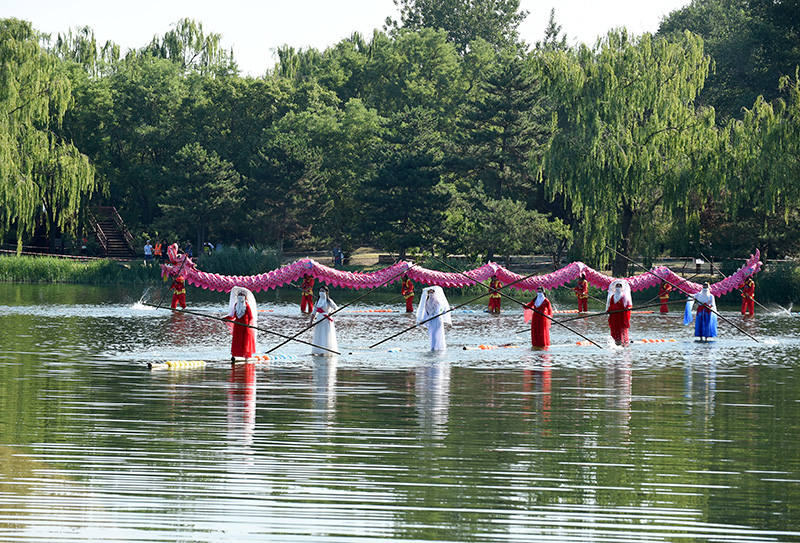
On June 22 nd, the solo bamboo drifter performed on the water in Houhu Lake in Kyushu Scenic Area of Yuanmingyuan, Beijing.
It was the fifth day of the fifth lunar month, the Dragon Boat Festival, a traditional festival in China. Various places hold colorful cultural and recreational activities to spend traditional festivals.
Xinhua News Agency reporter Luo Xiaoguang photo
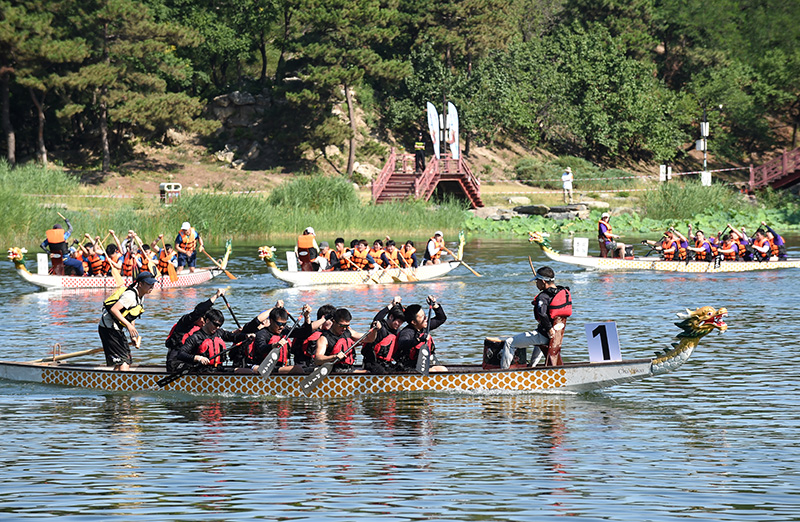
On June 22 nd, the dragon boat race was held in Houhu, Kyushu Scenic Area, Yuanmingyuan, Beijing, in the form of a round-robin competition.
It was the fifth day of the fifth lunar month, the Dragon Boat Festival, a traditional festival in China. Various places hold colorful cultural and recreational activities to spend traditional festivals.
Xinhua News Agency reporter Luo Xiaoguang photo
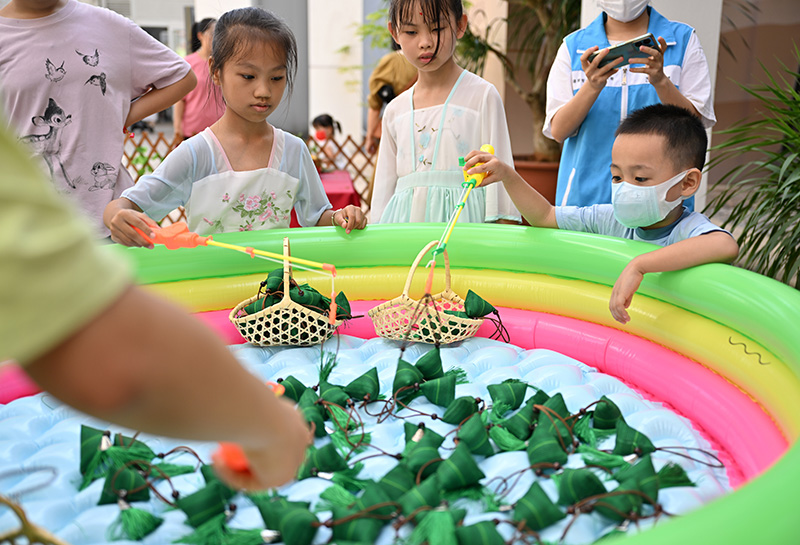
On June 22nd, children participated in the activity of "fishing for fragrant zongzi" in Hainan Provincial Museum.
It was the fifth day of the fifth lunar month, the Dragon Boat Festival, a traditional festival in China. Various places hold colorful cultural and recreational activities to spend traditional festivals.
Xinhua News Agency reporter Guo Chengshe

On June 22nd, the staff of Hainan Provincial Museum gave the children "some realgar".
It was the fifth day of the fifth lunar month, the Dragon Boat Festival, a traditional festival in China. Various places hold colorful cultural and recreational activities to spend traditional festivals.
Xinhua News Agency reporter Guo Chengshe

On June 22, children learned to make wormwood door hanging in Hainan Provincial Museum.
It was the fifth day of the fifth lunar month, the Dragon Boat Festival, a traditional festival in China. Various places hold colorful cultural and recreational activities to spend traditional festivals.
Xinhua News Agency reporter Guo Chengshe
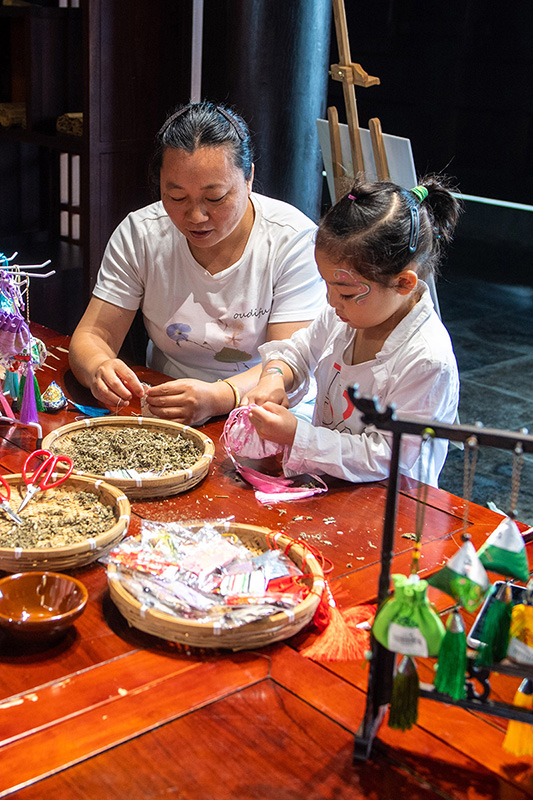
On June 22nd, tourists made sachets in Quzi Cultural Park, Quzici Town, Miluo City, Yueyang City, Hunan Province.
It was the fifth day of the fifth lunar month, the Dragon Boat Festival, a traditional festival in China. Various places hold colorful cultural and recreational activities to spend traditional festivals.
Xinhua News Agency reporter Chen Si Khan photo
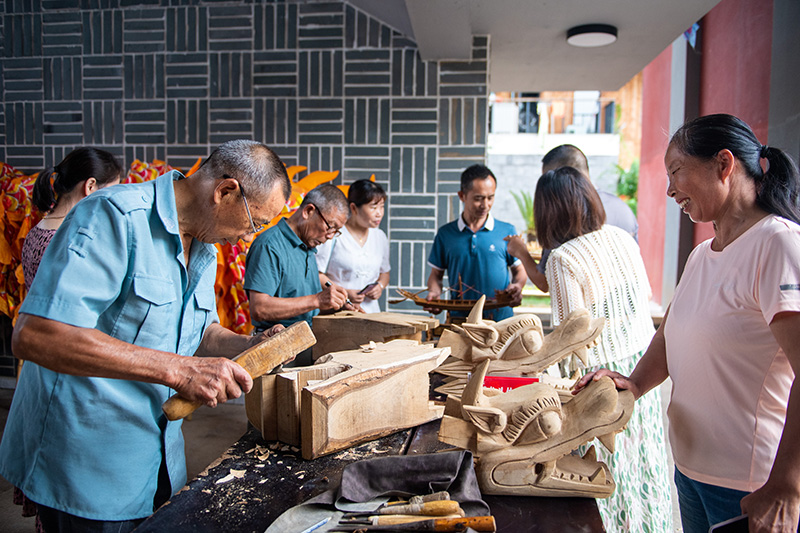
On June 22, craftsmen showed their carving skills to tourists in Xinyi Village, Quzici Town, Miluo City, Yueyang City, Hunan Province.
It was the fifth day of the fifth lunar month, the Dragon Boat Festival, a traditional festival in China. Various places hold colorful cultural and recreational activities to spend traditional festivals.
Xinhua News Agency reporter Chen Si Khan photo
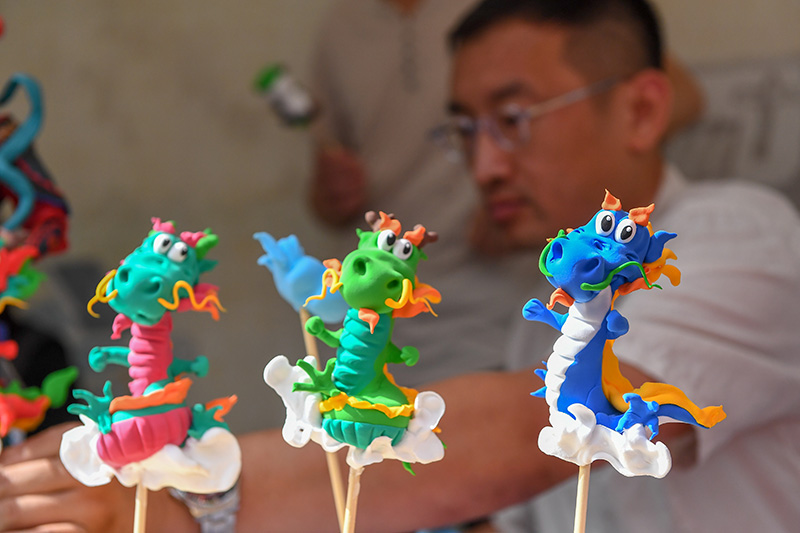
On June 22 nd, craftsmen showed their non-legacy handicrafts in Yitonghe Industrial Track Park in Changchun City, Jilin Province.
It was the fifth day of the fifth lunar month, the Dragon Boat Festival, a traditional festival in China. Various places hold colorful cultural and recreational activities to spend traditional festivals.
Xinhua News Agency reporter Zhang Nanshe
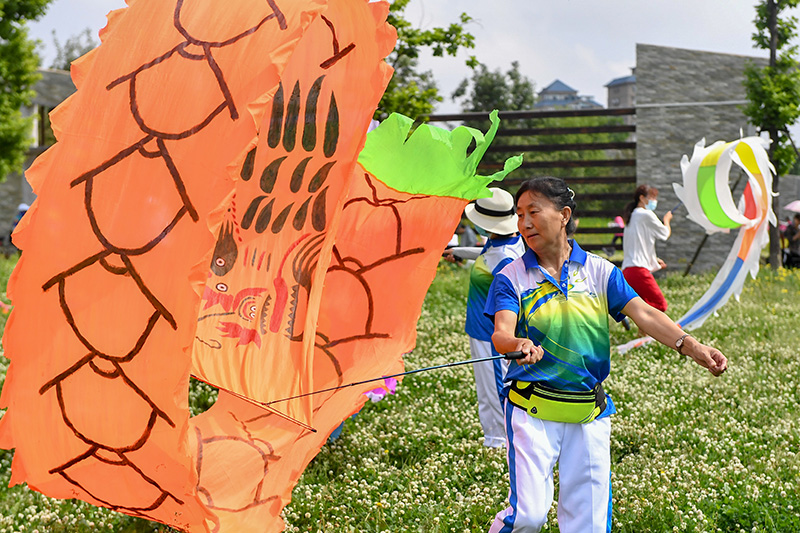
On June 22, citizens performed a dragon-shaped colored silk performance in Yitonghe Industrial Track Park, Changchun City, Jilin Province.
It was the fifth day of the fifth lunar month, the Dragon Boat Festival, a traditional festival in China. Various places hold colorful cultural and recreational activities to spend traditional festivals.
Xinhua News Agency reporter Zhang Nanshe
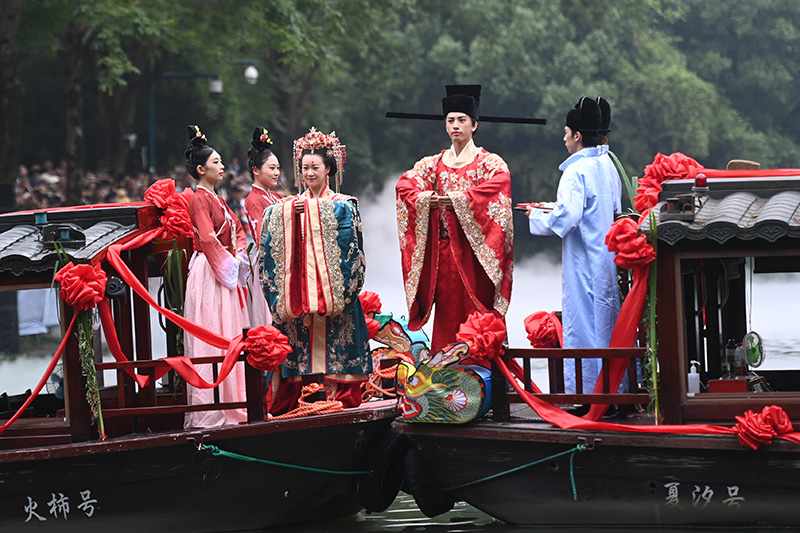
On June 22nd, a water town wedding was staged in Xixi National Wetland Park in Hangzhou.
It was the fifth day of the fifth lunar month, the Dragon Boat Festival, a traditional festival in China. Various places hold colorful cultural and recreational activities to spend traditional festivals.
Xinhua News Agency reporter Huang Zongzhi photo
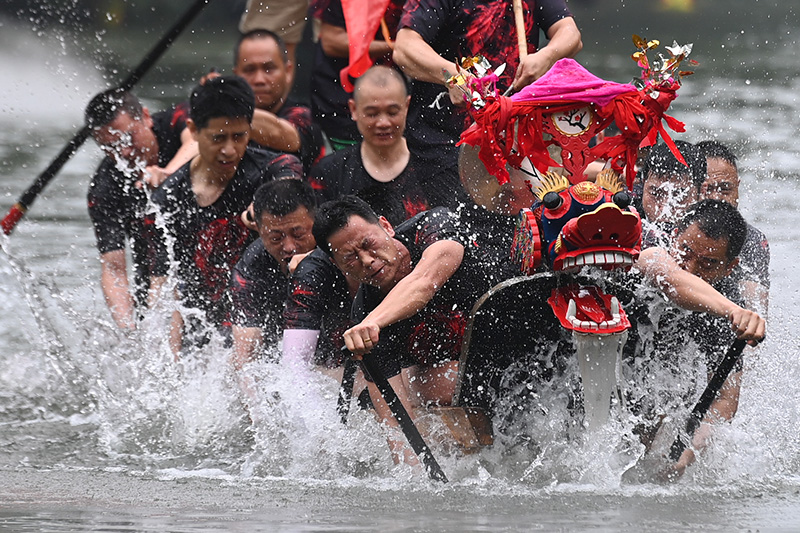
On June 22nd, villagers rowed dragon boats at Jiangcun Dragon Boat Festival in Hangzhou Xixi National Wetland Park. Jiangcun Dragon Boat Festival was listed in the national intangible cultural heritage list in 2011.
It was the fifth day of the fifth lunar month, the Dragon Boat Festival, a traditional festival in China. Various places hold colorful cultural and recreational activities to spend traditional festivals.
Xinhua News Agency reporter Huang Zongzhi photo
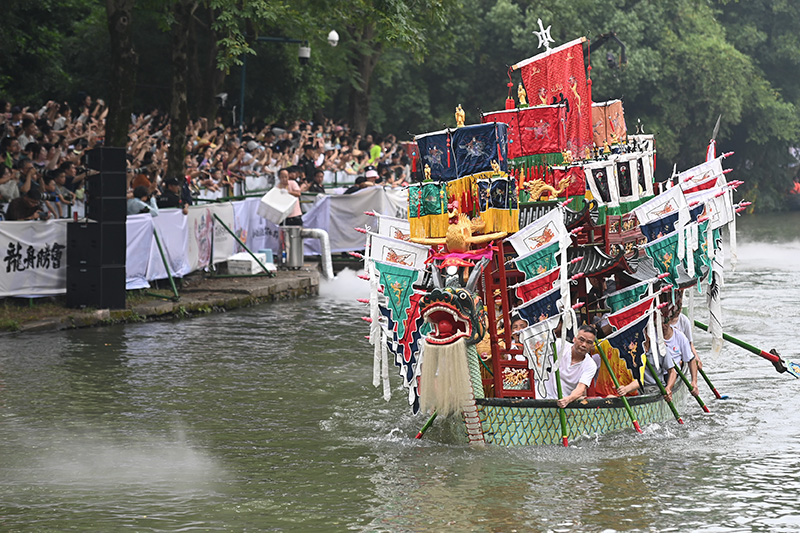
On June 22nd, villagers rowed dragon boats at Jiangcun Dragon Boat Festival in Hangzhou Xixi National Wetland Park. Jiangcun Dragon Boat Festival was listed in the national intangible cultural heritage list in 2011.
It was the fifth day of the fifth lunar month, the Dragon Boat Festival, a traditional festival in China. Various places hold colorful cultural and recreational activities to spend traditional festivals.
Xinhua News Agency reporter Huang Zongzhi photo
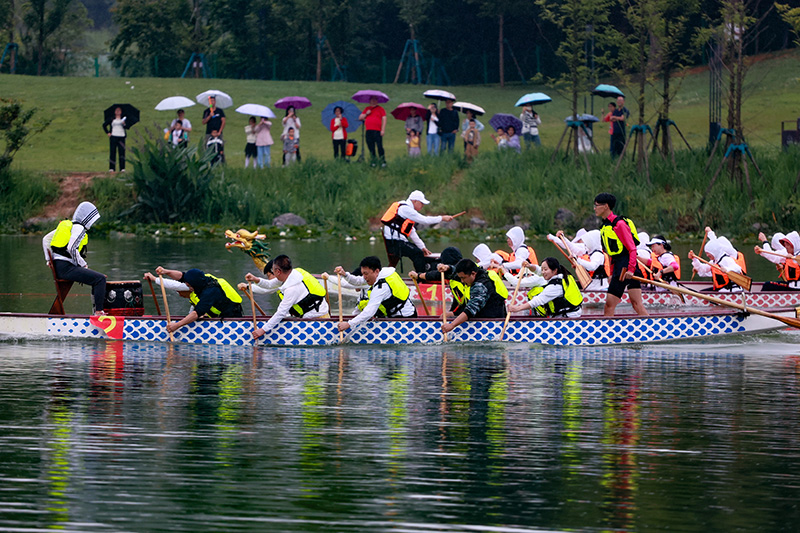
On June 22nd, citizens held a dragon boat race in Yueshanhu Wetland Park in Guiyang.
It was the fifth day of the fifth lunar month, the Dragon Boat Festival, a traditional festival in China. Various places hold colorful cultural and recreational activities to spend traditional festivals.
Xinhua News Agency reporter Liu Xushe
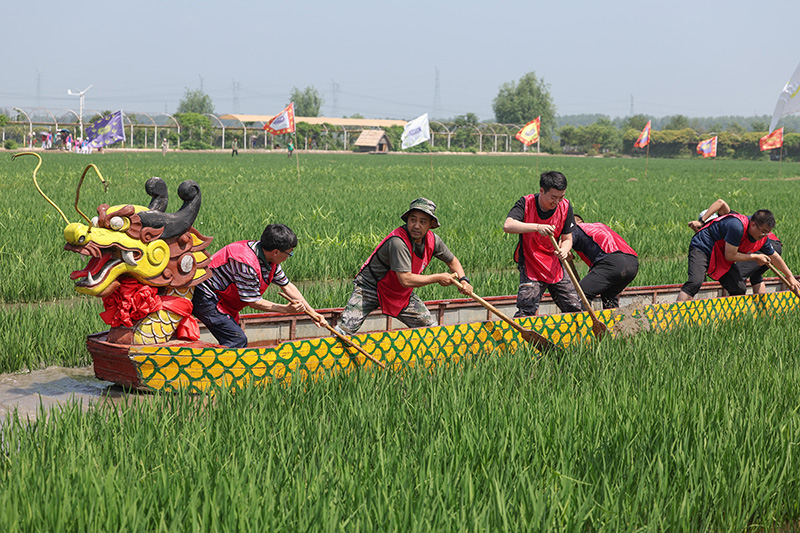
On June 22, the contestants rowed dragon boats in the mud of rice fields in Xibo Town, Xinglongtai, Shenbei New District, Shenyang.
It was the fifth day of the fifth lunar month, the Dragon Boat Festival, a traditional festival in China. Various places hold colorful cultural and recreational activities to spend traditional festivals.
Xinhua News Agency reporter Yang Qing photo
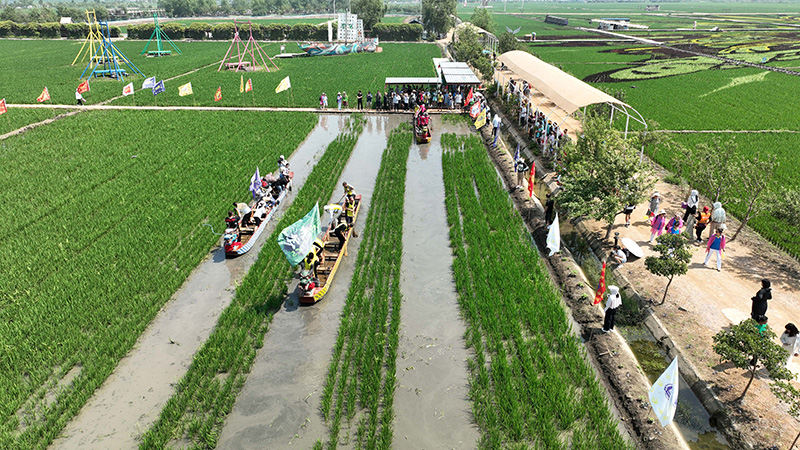
On June 22 nd, the contestants rowed dragon boats in the mud of rice fields in Xibo Town, Xinglongtai, Shenbei New District, Shenyang (photo of drone).
It was the fifth day of the fifth lunar month, the Dragon Boat Festival, a traditional festival in China. Various places hold colorful cultural and recreational activities to spend traditional festivals.
Xinhua News Agency reporter Yang Qing photo
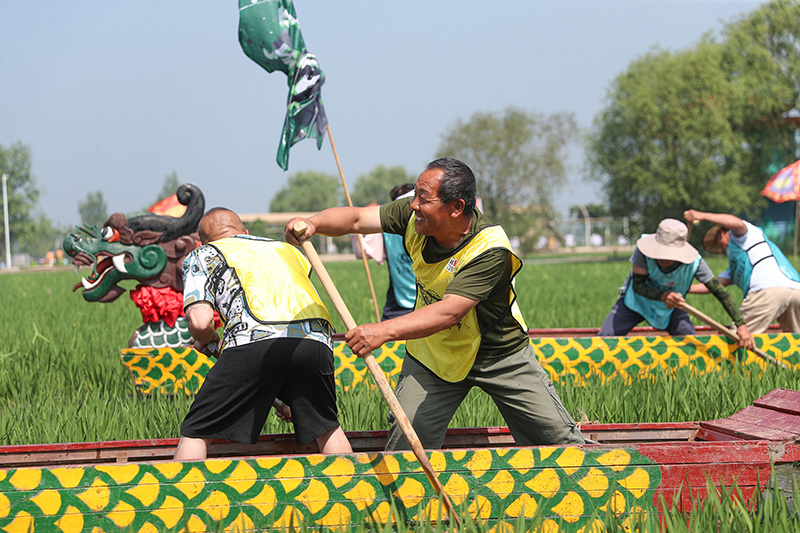
On June 22, the contestants rowed dragon boats in the mud of rice fields in Xibo Town, Xinglongtai, Shenbei New District, Shenyang.
It was the fifth day of the fifth lunar month, the Dragon Boat Festival, a traditional festival in China. Various places hold colorful cultural and recreational activities to spend traditional festivals.
Xinhua News Agency reporter Long Lei photo
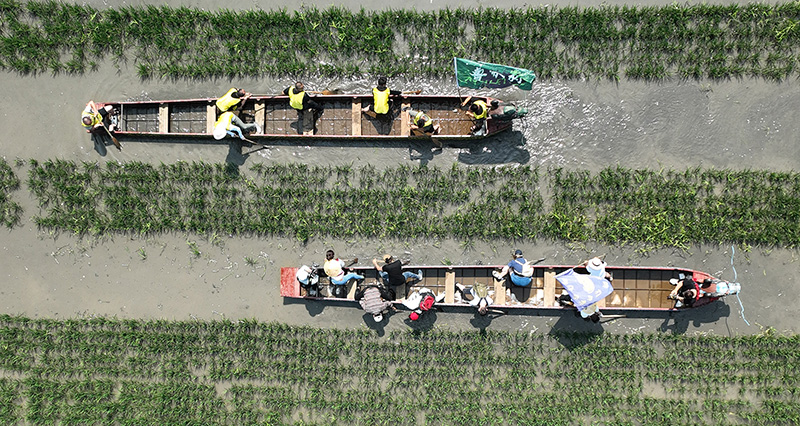
On June 22 nd, the contestants rowed dragon boats in the mud of rice fields in Xibo Town, Xinglongtai, Shenbei New District, Shenyang (photo of drone).
It was the fifth day of the fifth lunar month, the Dragon Boat Festival, a traditional festival in China. Various places hold colorful cultural and recreational activities to spend traditional festivals.
Xinhua News Agency reporter Yang Qing photo
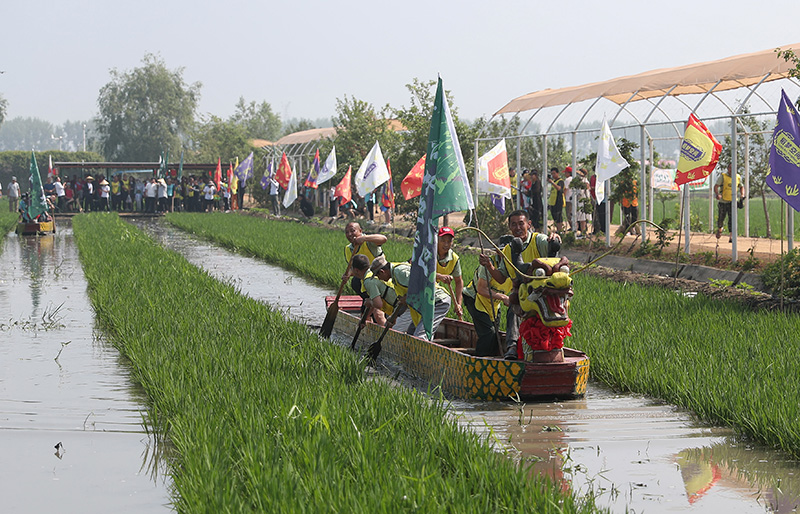
On June 22, the contestants rowed dragon boats in the mud of rice fields in Xibo Town, Xinglongtai, Shenbei New District, Shenyang.
It was the fifth day of the fifth lunar month, the Dragon Boat Festival, a traditional festival in China. Various places hold colorful cultural and recreational activities to spend traditional festivals.
Xinhua News Agency reporter Long Lei photo
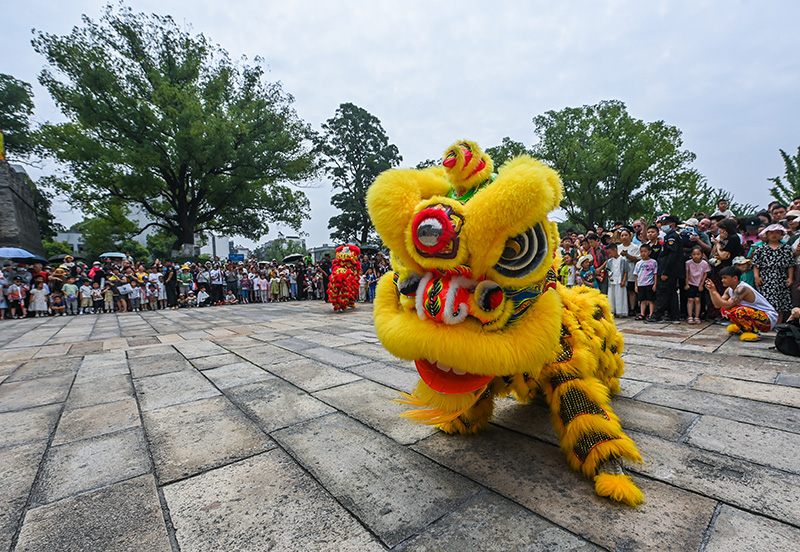
This is a lion dance performance filmed in the Park Square of Zicheng Ruins in Jiaxing, Zhejiang Province on June 22nd.
It was the fifth day of the fifth lunar month, the Dragon Boat Festival, a traditional festival in China. Various places hold colorful cultural and recreational activities to spend traditional festivals.
Xinhua News Agency reporter Xu Yushe
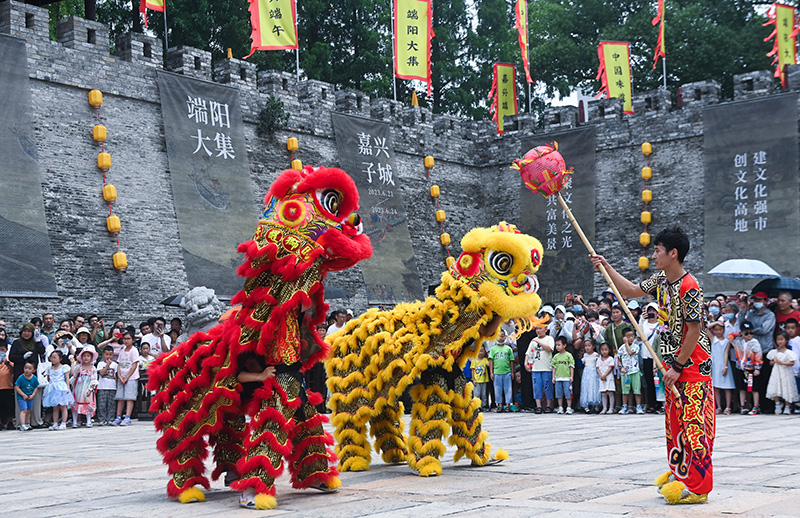
This is a lion dance performance filmed in the Park Square of Zicheng Ruins in Jiaxing, Zhejiang Province on June 22nd.
It was the fifth day of the fifth lunar month, the Dragon Boat Festival, a traditional festival in China. Various places hold colorful cultural and recreational activities to spend traditional festivals.
Xinhua News Agency reporter Xu Yushe
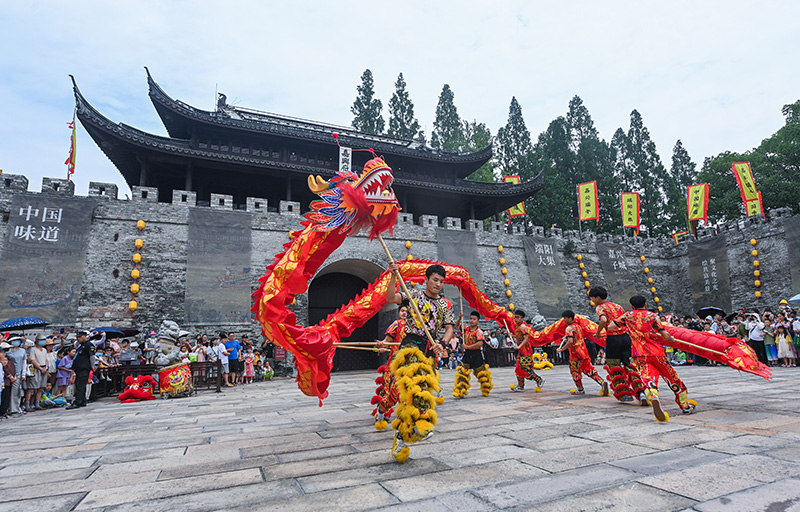
This is a dragon dance performance filmed in the Park Square of Zicheng Ruins in Jiaxing, Zhejiang Province on June 22nd.
It was the fifth day of the fifth lunar month, the Dragon Boat Festival, a traditional festival in China. Various places hold colorful cultural and recreational activities to spend traditional festivals.
Xinhua News Agency reporter Xu Yushe
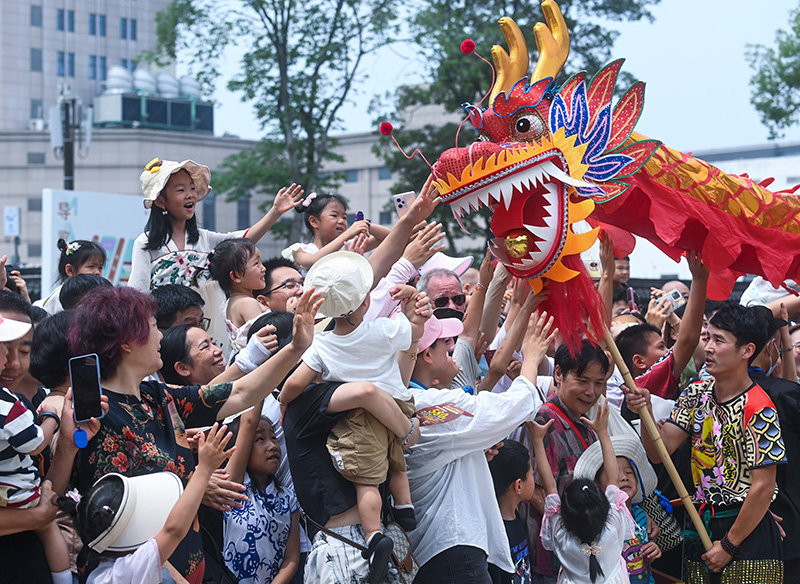
On June 22nd, the Dragon Dance Team interacted with the audience in the Park Square of Zicheng Ruins in Jiaxing, Zhejiang.
It was the fifth day of the fifth lunar month, the Dragon Boat Festival, a traditional festival in China. Various places hold colorful cultural and recreational activities to spend traditional festivals.
Xinhua News Agency reporter Xu Yushe

On June 22nd, at the Dragon Boat Festival held in shibin, Qiandongnan Miao and Dong Autonomous Prefecture, Guizhou Province, ethnic minority compatriots paraded in costumes.
It was the fifth day of the fifth lunar month, the Dragon Boat Festival, a traditional festival in China. Various places hold colorful cultural and recreational activities to spend traditional festivals.
Xinhua News Agency reporter Tao Liang photo
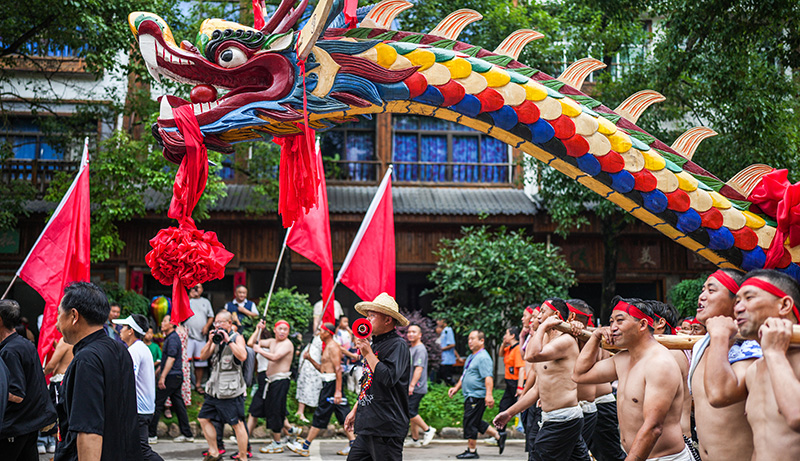
On June 22nd, a canoe dragon boat parade was held in shibin, Qiandongnan Miao and Dong Autonomous Prefecture.
It was the fifth day of the fifth lunar month, the Dragon Boat Festival, a traditional festival in China. Various places hold colorful cultural and recreational activities to spend traditional festivals.
Xinhua News Agency reporter Tao Liang photo
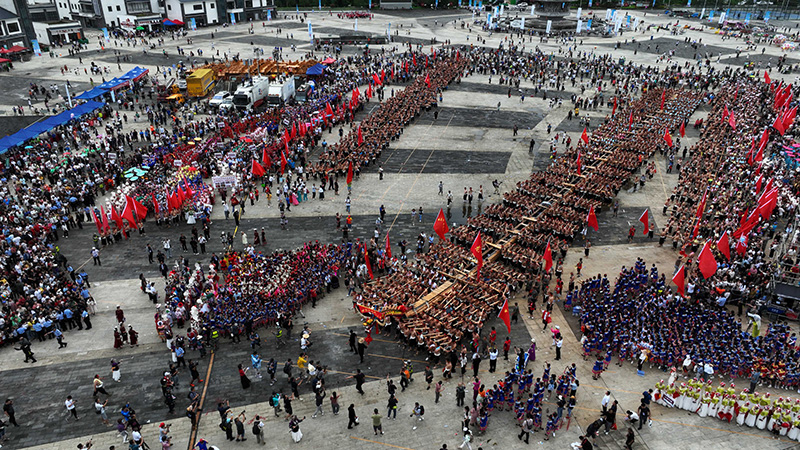
On June 22nd, people took part in the dragon boat parade (photo of drone) at the Dragon Boat Festival held in shibin, Qiandongnan Miao and Dong Autonomous Prefecture, Guizhou Province.
It was the fifth day of the fifth lunar month, the Dragon Boat Festival, a traditional festival in China. Various places hold colorful cultural and recreational activities to spend traditional festivals.
Xinhua News Agency reporter Yang Yushe
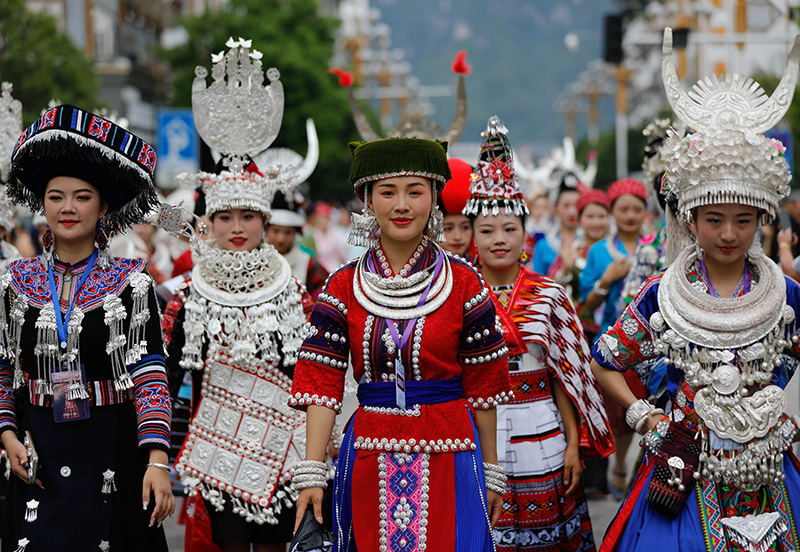
On June 22nd, at the Dragon Boat Festival held in shibin, Qiandongnan Miao and Dong Autonomous Prefecture, Guizhou Province, ethnic minority compatriots paraded in costumes.
It was the fifth day of the fifth lunar month, the Dragon Boat Festival, a traditional festival in China. Various places hold colorful cultural and recreational activities to spend traditional festivals.
Xinhua News Agency (photo by Yang Xiaohai)
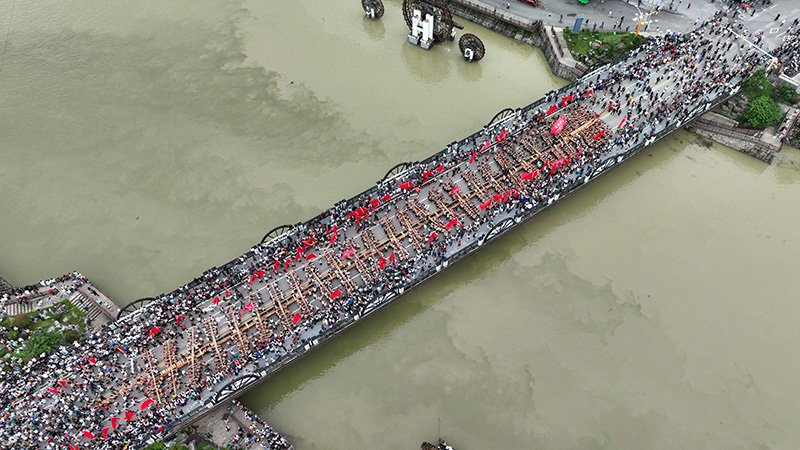
On June 22nd, people took part in the dragon boat parade (photo of drone) at the Dragon Boat Festival held in shibin, Qiandongnan Miao and Dong Autonomous Prefecture, Guizhou Province.
It was the fifth day of the fifth lunar month, the Dragon Boat Festival, a traditional festival in China. Various places hold colorful cultural and recreational activities to spend traditional festivals.
Xinhua News Agency (photo by Yang Xiaohai)
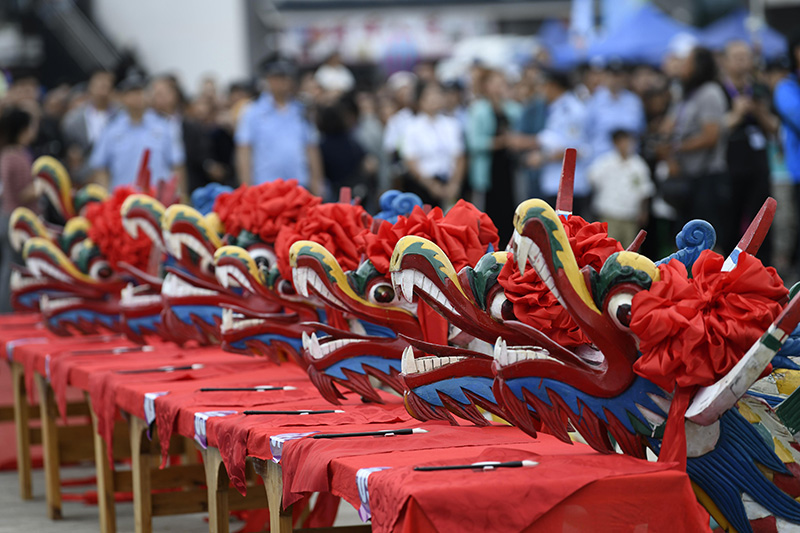
This is the dragon head shot in shibin, Qiandongnan Miao and Dong Autonomous Prefecture, Guizhou Province on June 22nd.
It was the fifth day of the fifth lunar month, the Dragon Boat Festival, a traditional festival in China. Various places hold colorful cultural and recreational activities to spend traditional festivals.
Xinhua News Agency (photo by Wang Chao)
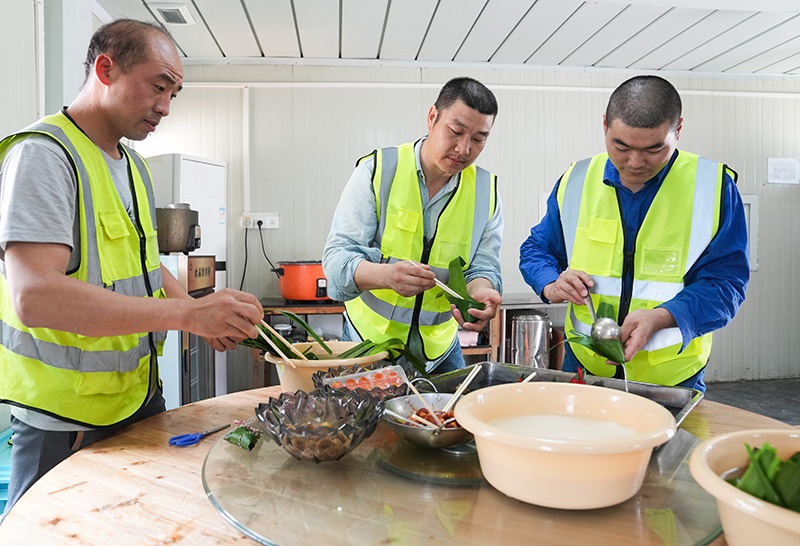
On June 22, workers of an installation company of China Construction Third Bureau made zongzi in the canteen of a project site in Shanghai.
It was the fifth day of the fifth lunar month, the Dragon Boat Festival, a traditional festival in China. Various places hold colorful cultural and recreational activities to spend traditional festivals.
Xinhua News Agency reporter Ding Ting photo

On June 22, children showed the made small basket of wormwood at the Dragon Boat Festival held in Huacao Town, Minhang District, Shanghai.
It was the fifth day of the fifth lunar month, the Dragon Boat Festival, a traditional festival in China. Various places hold colorful cultural and recreational activities to spend traditional festivals.
Xinhua News Agency reporter Wang Xiang photo
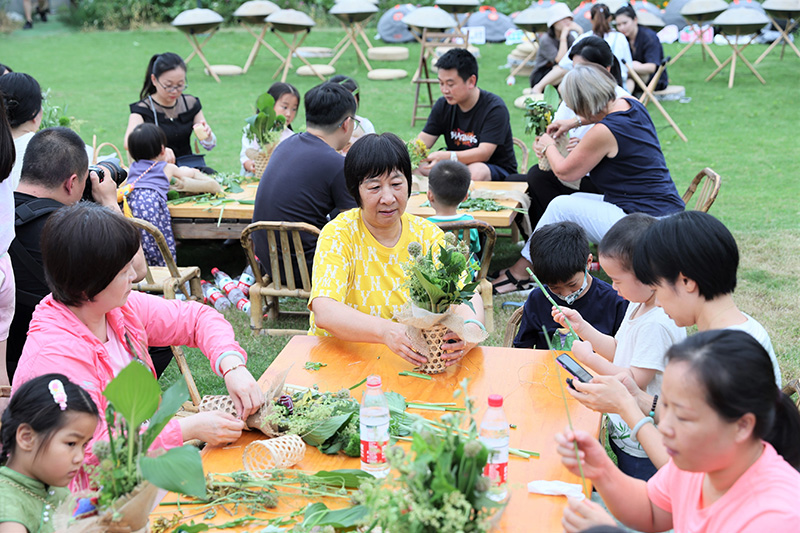
On June 22nd, people made small baskets of wormwood at the Dragon Boat Festival held in Huacao Town, Minhang District, Shanghai.
It was the fifth day of the fifth lunar month, the Dragon Boat Festival, a traditional festival in China. Various places hold colorful cultural and recreational activities to spend traditional festivals.
Xinhua News Agency reporter Wang Xiang photo

On June 22nd, children enjoyed dough figurines in Longsheng Park, Zhuozi County, Wulanchabu City, Inner Mongolia.
It was the fifth day of the fifth lunar month, the Dragon Boat Festival, a traditional festival in China. Various places hold colorful cultural and recreational activities to spend traditional festivals.
Xinhua News Agency reporter Behe photo

On June 22nd, in Zhujiajiao Ancient Town, Qingpu, Shanghai, foreign students showed zongzi at the event of making zongzi.
It was the fifth day of the fifth lunar month, the Dragon Boat Festival, a traditional festival in China. Various places hold colorful cultural and recreational activities to spend traditional festivals.
Xinhua News Agency reporter Fang Yushe

On June 22nd, in Zhujiajiao Ancient Town, Qingpu, Shanghai, foreign students learned how to make zongzi.
It was the fifth day of the fifth lunar month, the Dragon Boat Festival, a traditional festival in China. Various places hold colorful cultural and recreational activities to spend traditional festivals.
Xinhua News Agency reporter Fang Yushe
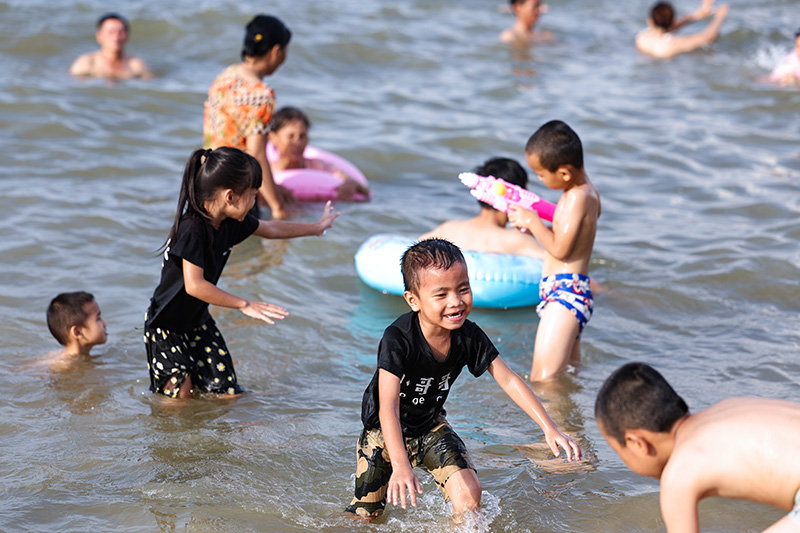
On June 22nd, children "washed dragon water" at Haikou Holiday Beach.
It was the fifth day of the fifth lunar month, the Dragon Boat Festival, a traditional festival in China. Various places hold colorful cultural and recreational activities to spend traditional festivals.
Xinhua News Agency reporter Fan Yuqing photo
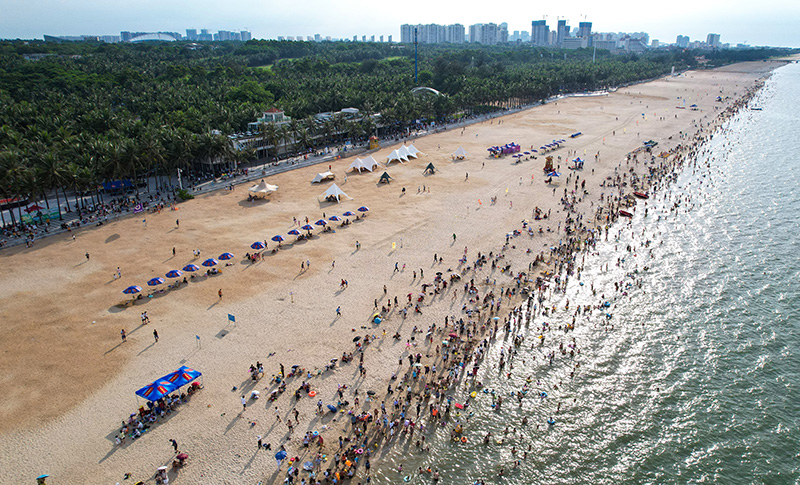
On June 22, people "washed dragon water" at Haikou Holiday Beach (photo of drone).
It was the fifth day of the fifth lunar month, the Dragon Boat Festival, a traditional festival in China. Various places hold colorful cultural and recreational activities to spend traditional festivals.
Xinhua News Agency reporter Fan Yuqing photo

On June 22, people "washed dragon water" at Haikou Holiday Beach (photo of drone).
It was the fifth day of the fifth lunar month, the Dragon Boat Festival, a traditional festival in China. Various places hold colorful cultural and recreational activities to spend traditional festivals.
Xinhua News Agency reporter Fan Yuqing photo
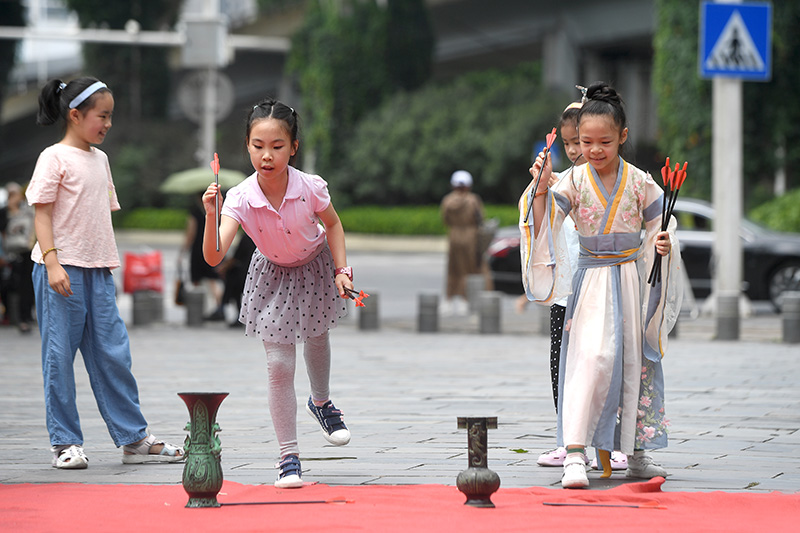
On June 22, children participated in pot throwing at the Dragon Boat Festival in Dijiao Park, Wuhan.
It was the fifth day of the fifth lunar month, the Dragon Boat Festival, a traditional festival in China. Various places hold colorful cultural and recreational activities to spend traditional festivals.
Xinhua News Agency (photo by Zhou Chao)

On June 22, children fought dragon boats at the Dragon Boat Festival in Weinan Museum, Shaanxi Province.
It was the fifth day of the fifth lunar month, the Dragon Boat Festival, a traditional festival in China. Various places hold colorful cultural and recreational activities to spend traditional festivals.
Xinhua News Agency (photo by Cui Zhengbo)
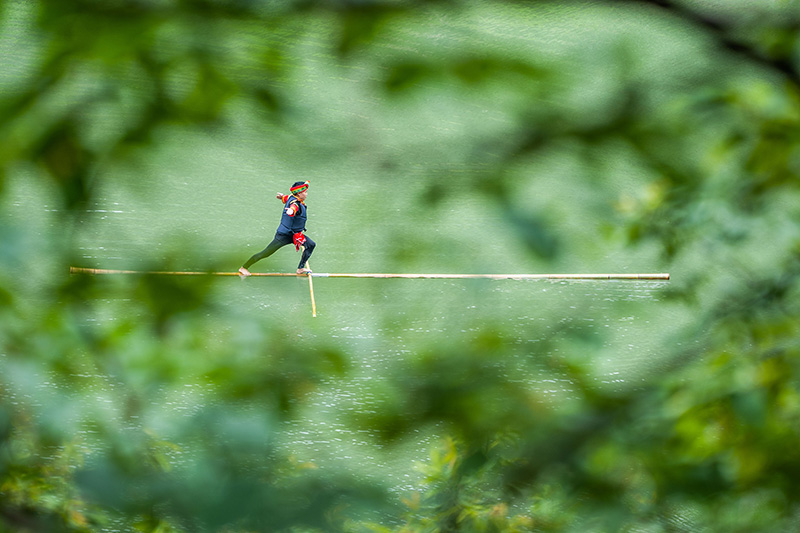
On June 22 nd, the performer of Duzhu Piao performed in Jiudongtian Scenic Area, Bijie City, Guizhou Province.
It was the fifth day of the fifth lunar month, the Dragon Boat Festival, a traditional festival in China. Various places hold colorful cultural and recreational activities to spend traditional festivals.
Xinhua News Agency (photo by Luo Dafu)
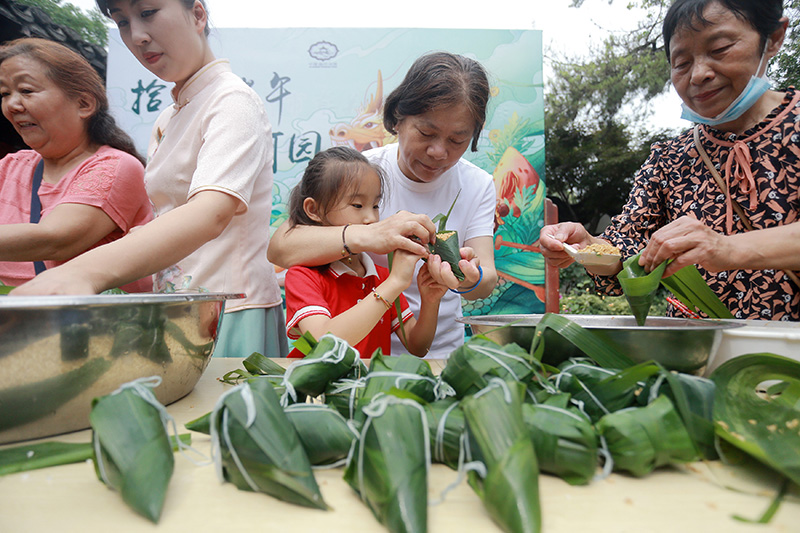
On June 22nd, in Heyuan Scenic Area, Yangzhou City, Jiangsu Province, children learned to make dumplings with the help of community volunteers.
It was the fifth day of the fifth lunar month, the Dragon Boat Festival, a traditional festival in China. Various places hold colorful cultural and recreational activities to spend traditional festivals.
Xinhua News Agency (photo by Meng Delong)
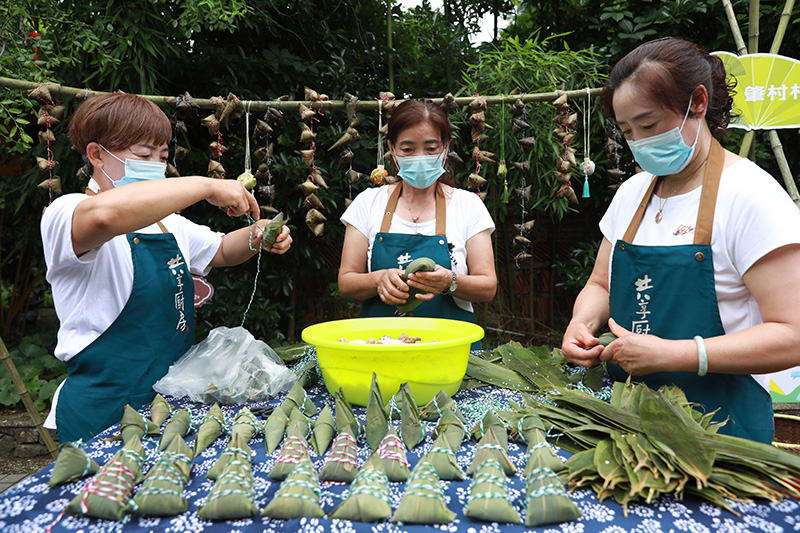
On June 22, villagers in Yueliangqiao Village, Tianmushan Town, Lin ‘an District, Hangzhou City, Zhejiang Province were making zongzi.
It was the fifth day of the fifth lunar month, the Dragon Boat Festival, a traditional festival in China. Various places hold colorful cultural and recreational activities to spend traditional festivals.
Xinhua News Agency (photo by Hu Jianhuan)
